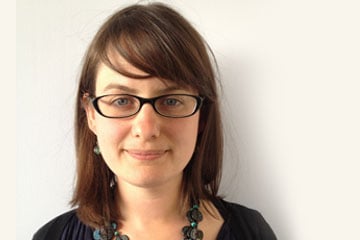Ontario human rights lawyers are expressing concerns over the introduction of a bill that would stop those who are convicted of terrorist-related offences abroad from receiving provincial health coverage or holding a driver’s licence.

Ontario human rights lawyers are expressing concerns over the introduction of a bill that would stop those who are convicted of terrorist-related offences abroad from receiving provincial health coverage or holding a driver’s licence.
Today, the government of Ontario released a copy of the bill, which is being sponsored by MPP Dave Smith, called the Terrorist Activities Sanctions Act.
News of the bill broke last week, and late Friday night, Ontario Premier Doug Ford tweeted, “If you leave Canada to go fight for ISIS, you should not be welcomed back with open arms. Since [Canadian Prime Minister] Justin Trudeau doesn’t seem to take this seriously, MPP @DaveSmithPtbo is taking action to send a message that there are consequences for leaving Ontario to commit indefensible crimes.”
Abby Deshman, a lawyer who is director of the criminal justice program for the Canadian Civil Liberties Association in Toronto, says news about the proposed bill is “concerning.”
“We have a criminal justice system that is charged with providing independent, fair assessments of whether people committed crimes and also the appropriate punishment for those crimes,” says Deshman.
“And we give that job to independent judges and not politicians for a good reason.”
If passed, the bill would reportedly remove access to those convicted for terrorism-related offences to supports such as loans and grants for post-secondary education, housing support and disability income, the Toronto Sun reported last week, as well as hunting and fishing licences or assistance through WSIB. But Deshman says that is unjust.
“If someone has completed their sentence — a fair sentence, a fair punishment for whatever criminal offence they’ve committed — we expect them to return to society and to lead law-abiding lives as contributing members of the community,” says Deshman.
“It’s very hard to see how stopping somebody from having a driver’s licence, health-care coverage or any other number of really essential public services is going to help make that happen.”
Emily McCullough, a spokeswoman for Smith, said he was not available for an interview Monday afternoon.
However, in a media scrum Monday, he told reporters: “Any convicted terrorist who is coming back to our country should not enjoy the privileges that [Ontarians] have.”
“People in Ontario need to feel safe. There is no reason why a convicted terrorist should be able to roam freely in this country, roam freely in this province and get all of the privileges that we enjoy,” he said, according to a transcript of the scrum provided by his spokeswoman.
Hassan Ahmad, a human rights lawyer in Toronto, says the bill could be challenged under s. 15 of the Charter for discriminating on religious and cultural grounds. He also says it could be challenged under the Constitution for being ultra vires, because an argument could be made that it falls under the federal government’s mandate, not the province’s.
“This looks to me to be a smokescreen for some type of religious or cultural discrimination toward — whether it be Muslims, whether it be people of Middle Eastern origin or people who converted to Islam — because this is who it really affects at the end of the day,” he says.
It is focused only on those convicted under the anti-terrorism provisions under the federal Criminal Code, he notes, and not other offences.
“Would this have been done equally to people from other minority groups . . . to other religious groups?” he says. “If you have people, for instance, going to other places to participate in right-wing marches or in any kind of abusive or violent conduct in other places and then coming back to Ontario, are the same provisions being applied to them, are they similarly being restricted in their ability to drive, in their ability to obtain benefits?”
Ahmad says he thinks the bill is “political posturing.”
“In effect, [it’s] discriminating toward a small sub-set of people that come from a religious and a cultural minority,” he says. “What it does is that it supports the Conservative base.”










